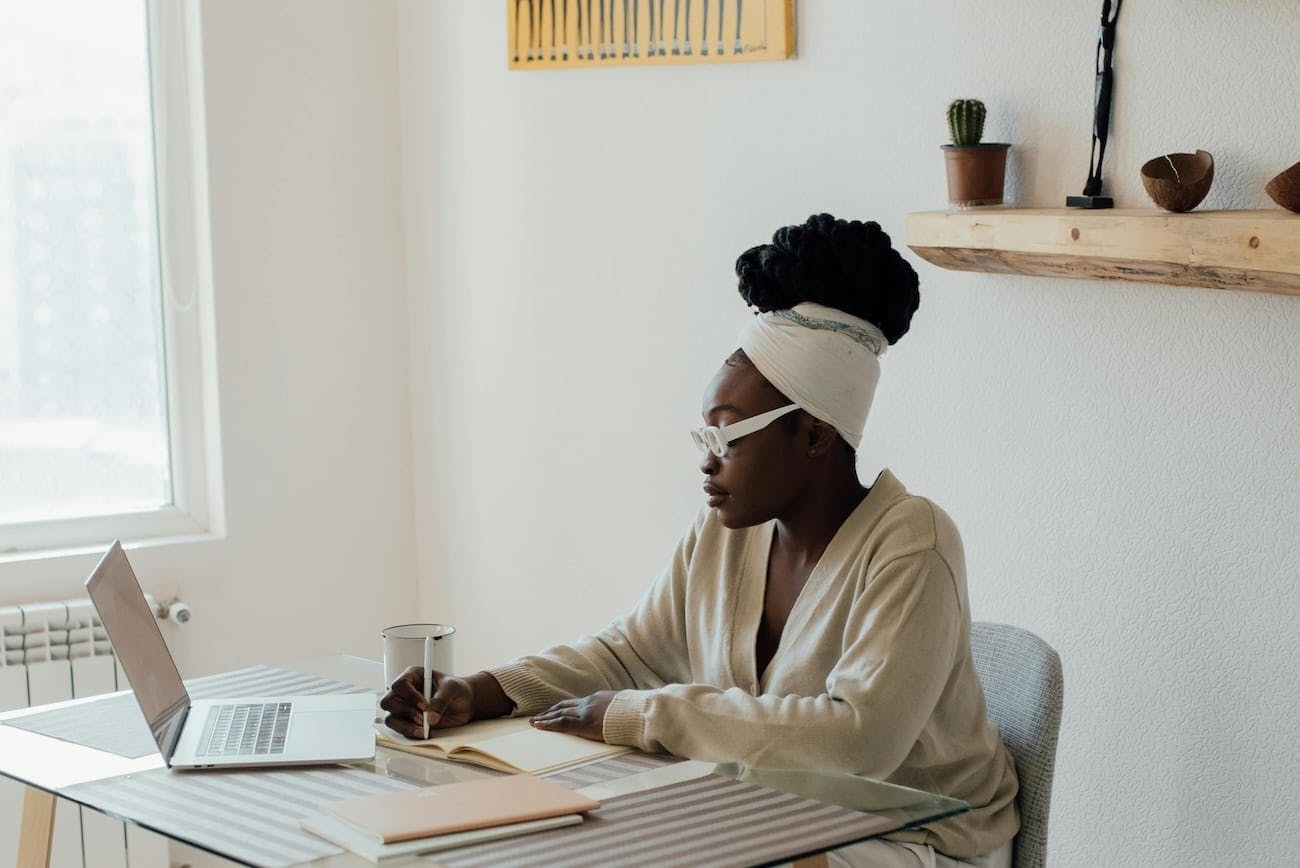
How can we process best and make reflection a habit?
How often do you take the time to pause and process your emotions? On our podcast last week we spoke to psychotherapist Bhavna Raithatha, creative VA and journal guide Sasha Glasgow, and author and journal guide Hannah Bevan to learn more about the importance of processing.
This week, in our exhale episode, we’re sharing some questions to help you reflect on how you process best, how to make it a habit and what support you need. Watch below or listen wherever you get your podcasts.
Transcript:
Kat: Hello everyone and welcome to another exhale episode here on Finding What Works. Today we're going to be reflecting on a conversation we had last week, all about processing. In that conversation, we delved deeply into the purpose of processing, how it can be so beneficial for us, and also when it might be time to step back from processing. If you haven't listened to that conversation already, I really recommend you head back into your podcast app and give it a listen. There's some really useful nuggets of wisdom there. But today we're going to explore some prompts to help you understand how you process best and also how you can make processing and reflecting more of a habit.
So let's start with a question about your preferred style of processing. After which of these scenarios do you feel better when you're trying to work through something: writing in a journal, speaking to friends or family members, speaking to someone completely unbiased, going out for a walk, meditating, or perhaps something different entirely.
You may hear these ideas and immediately know what your preferred choice is. You may think, oh, I need to try a couple of those things out to see what works best. Or you might realise that it's a combination of these different things that helps you. Either way, hopefully now you have a better idea of how you process best.
So let's talk a little bit more about how we can make this a habit, and I've got a few questions here to help you with this. And the first question is, how can you start small? In our conversation last week, Sasha talked about the importance of starting small when it comes to integrating new habits.
One of the ideas she shared was about leaving a notebook next to your kettle so that any time you're making a cup of tea or a cup of coffee, you can maybe jot down a few notes just whilst the kettle's boiling. Perhaps you could try going out for a walk after work. Just a quick five-minute one to decompress and process the day. Those are just a couple of ideas, but the real takeaway here is to start small, to start integrating new habits.
The next question I have for you is, what habit can you stack reflecting and processing onto? Now, habit stacking is a great way of implementing new habits, and it's all about tying something new to something already existing in your daily routine. So as an example, if you want to start meditating every day, maybe that's a reflection goal for you, think about what else you do every single day. So perhaps if you take a daily shower, maybe you could work meditation into that routine. Maybe after you've showered in those few minutes we all have where we sit in our towel before we get up and get dressed, maybe you could take five minutes to meditate then.
The aim here is to really think about your daily routine and how processing and reflection could fit into that. And remember, it doesn't have to be a long process. You don't have to write pages and pages and pages. You don't have to meditate for hours on end or go for really long nature walks. Start small, see what feels good, and then you can build from there.
The next question I have for you is how can you support yourself to process? In our discussion last week, Bhavna talked about some really helpful tools and techniques that help us process and support ourselves in doing that. And those tools were: ensuring we get a good night's sleep, nourishing ourselves properly moving our body and engaging in community.
So ask yourself, do you need to work on any of those areas? Is there anything there that you think you could benefit from some support with? Hopefully these ideas and prompts will help you investigate this idea of processing a little bit more and figure out what's gonna work best for you.
And I want to leave you with a reminder that there are definitely times in our lives when it's quite beneficial to step back from processing. In our conversation last week, Hannah talked about an activity that really helps her stay present and mindful in the moment, which is surfing. And Sasha talked about theming some of her summers around fun and spontaneity to help with this.
Sasha also shared a really helpful quote for us to remember from Anais Nin. And that quote is, we write to taste life twice in the moment and in retrospect. And the reminder here is that we need to taste life in order to process and reflect on it. So I'm going to leave you with that thought.
Thank you so much for joining me today. I'll be back next week with a conversation all about food and mood. Until then, though, please take care.

